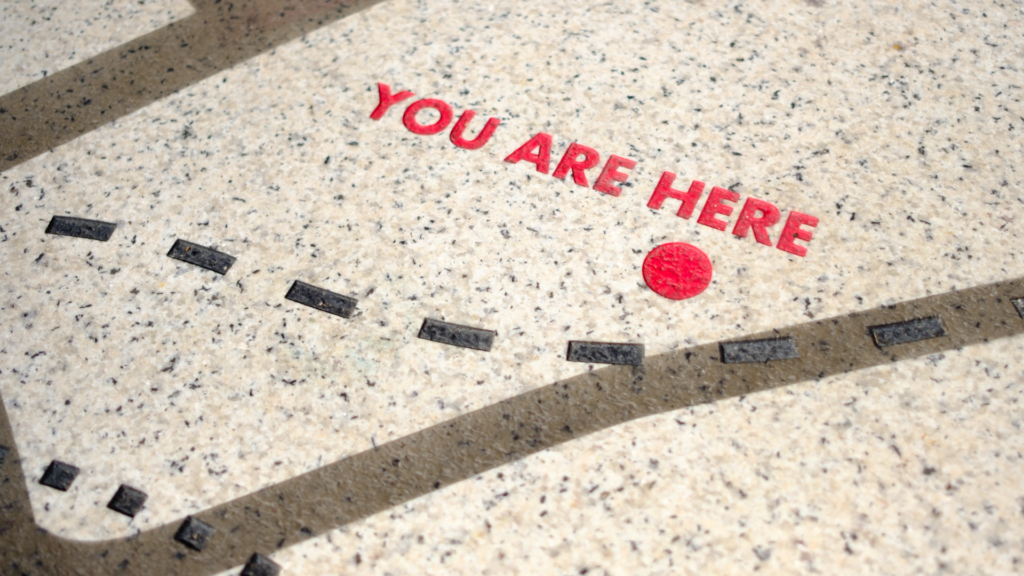15 minute read
In this article, we will explore the role of Personal Development coaching (also known as Personal Growth coaching) and understand its meaning, role and benefits.
We all need support throughout different stages of our lives, though it’s important to find the right support, to meet our specific needs.
Within the broad personal services and wellbeing fields, there are many different types of services we can access. These range from psychologists, counsellors, mentors, advisors, youth and social workers, through to holistic services and spiritual support.
A psychologist can help you to address issues around anxiety, depression or trauma. A health and fitness trainer can support you to get back in shape and increase your health. A nutritionist can assist you to work out what nutrients and foods your body needs.
A life coach offers assistance across a range of personal and professional development areas, supporting you to achieve your goals and discover your purpose and direction. Most importantly, coaching puts the individual back in the driver’s seat of their life and helps clients gain self-awareness.
Within the life coaching field, there are various types of coaches serving various roles and purposes, along with using various coaching techniques. Let’s explore this style of coaching in more depth, below.
First, what exactly is a Life Coach?

Pexels/Kindel Media
The International Coaching Federation is the leading body which sets the standards and ethics of the global coaching profession. The ICF defines life coaching as a partnership between clients and coaches. The purpose of the coach is to help their clients achieve new levels of personal development and deeper understanding of the self, through promoting creative thinking. The coach’s role is to inspire the client to “maximise their personal and professional potential” and unlock “previously untapped sources of imagination, productivity and leadership”. A high-quality coach should assist the client to create a framework to guide decision-making, both now and in the future.
There are many streams of life coaching, supporting the individual through a range of issues including:
- Relationship and family coaching
- Career coaching
- Health coaching
- Financial coaching
- Wellbeing coaching
- Corporate Coaching
- Spiritual Coaching
- Personal Development Coaching
Working as a Personal Development coach is where I fit in, so let’s explore this area of coaching in more depth, below.
What is a Personal Development Coach (sometimes known as a Personal Growth Coach)?
Personal development coaching is a specific area of life coaching, assisting individuals to create awareness of their thought patterns, behavioural responses and actions.
The coach supports the individual to create better outcomes that are aligned with their values, needs and wants. Coaching can assist the individual to make clearer decisions while identifying strategies, resources and new ways of thinking and behaving.
From a holistic perspective, the coach’s role is to assist their client to become aware of how their goal fits in with other areas of their life and consider what changes are required to make the goal sustainable.
Pathways to Finding Direction and Gaining Clarity:

Pexels/Julia Volk
There are a variety of tools, resources, strategies and techniques that a personal development coach can use to help you to find clear direction, increase self-awareness and create a sustainable pathway forward.
Your personal coach can use:
- Brainstorming.
- Value identifying.
- Guided imagery and visualisation.
- Reflection techniques.
- Role playing within a safe and supported space.
- Coaching-specific strategies specific to your circumstances.
- Exploring circumstances through the use of specific, targeted questions.
- Guided conversations
We will unpack a handful of the above techniques, further down in the article.
Brainstorming:

Brainstorming is the process of creative problem-solving. This is usually done by drawing a visual representation of the factors and influences related to a specific topic. The purpose of brainstorming is to get the creative juices flowing and help you to think outside-the-box.
During brainstorming, you may think of ideas or solutions that you haven’t considered before. By allowing yourself to think freely and spontaneously, writing down whatever comes to mind, your possibilities increase.
The process of brainstorming usually requires you to define a topic, issue or goal. Then, using your creative brain, try to generate as many related ideas, topics, sub-categories or solutions as possible in relation to the original topic, without analysing or organising these. Remain free of judgement. Simply sit with your results.
Once you’ve exhausted all ideas, begin to discuss these, unpacking each one’s possibility. Look for any repeating themes or patterns and what you think these mean. Evaluate and select the best ideas, then discuss their possibility for your circumstances.
Done that? Great! Now your coach can help you to create a plan moving forward, using the ideas generated.
Brainstorming can help you to consider different ideas, solutions or outcomes, or reinforce current pathways to success.
Identifying Values:

Have you ever felt stuck or unclear about which pathway to take, when making a decision? Have you felt confused, like there are forces pulling you in multiple directions? It’s likely that you have conflicting values going on under the surface.
A personal development coach assists you to explore your key values, uncover hidden motives or underlying issues preventing you from making informed decisions and moving forward.
Underlying values are powerful, yet oftentimes hidden motivators or inhibitors for action.
Some core values that can impact decision-making are:
- Authenticity
- Freedom
- Honesty
- Justice
- Wisdom
- Kindness
- Security
- Time
- Patience
- Independence
- Connection
- Power
- Wealth
Guided Imagery and Visualisation:

Guided imagery and visualisation are another set of tools that a personal development coach can use to help you to find direction and move forward towards your goals.
Guided imagery and visualisation can enhance your clarity and focus, by imagining your desired outcome. This provides you with a clearer picture of what it is exactly that you want to achieve. This coaching technique can help to boost your confidence in working towards your goals, making them more ‘real’.
The coach will help you to set the stage at the beginning of the visualisation technique, guiding you through a short relaxation exercise to help you enter a more receptive mental state. The coach will then assist you to clarify the goal, asking you to explain exactly what it is that you want. You’ll then be asked to create a ‘movie’ in your head, vividly imagining your goals’ success.
When you are able to visualise success, you are more likely to increase motivation and overcome obstacles. Be sure to provide as much detail as possible of what you’ve visualised. This assists the subconscious mind to embed and integrate the new reality. You may be asked to provide feedback from your five senses, further enhancing the experience. The coach will ask you open-ended, exploratory questions and observe any limiting beliefs and values.
Once the activity has ended, together, you’ll reflect on the information gained from your visualisation. The coach will then help you to create a plan forward, utilising your resources, knowledge, skills and strengths to move you toward your desired outcome.
Reflection Techniques for Personal Growth:

What do we mean by using reflection techniques within a life coaching context? Reflection involves exploring the inner workings of your mind, analysing thoughts, feelings, behaviours, actions, values and past experiences. From this, you can make sense of your world and your place within it, along with the values and qualities you bring.
Reflection encourages self-understanding and assists you to explore new perspectives, create different outcomes and change your decision-making practices. Reflection can be facilitated in a number of different ways.
One method is through questioning. The coach can use open-ended questions to support clients to explore what’s going on internally and understand themselves in more depth. Questions that begin with “what/how/why/ assist the client to consider a particular experience or aspect of the self. The client can then consider how their answer aligns with who they are, or with their desired outcome.
For example, your coach can facilitate internal reflection by asking:
- “Why do you think that choice or decision was important to you at the time?”
- “How would this situation help you to grow?”
- “What is important in this circumstance, and why is it important to you?”
- “How do you feel about having made that choice?”
- “How do you rate your stress level today? Why do you give this score?”
- “What is the driving force within, that continues to motivate you?”
Role-playing Within a Safe and Supported Space:

Much like visualisation and guided imagery, role-play assists the client to clarify their outcome. However, this time, the coachee is using their body and voice alongside their imagination, incorporating themselves into the visualisation.
Role-playing has a range of benefits for personal growth, including:
- Skills-development.
- Shifting your perspective.
- Developing increased emotional resilience.
- Developing more empathy within a particular circumstance.
Your coach can provide you with a safe, controlled space (either digitally online, or face-to-face in an office) to explore and expand your comfort zone, while using your imagination and putting yourself ‘in the picture’. Have you ever heard the saying “seeing is believing”? Why do you think that saying has stood the test of time in our society? When we can see something in front of our eyes, it becomes ‘real’ to us. The same principle can be applied to role playing and visualising – the outcomes become more realistic, desired and believable. If we can use our bodies and verbally engage with the desire we envision, we feel more connected to it. The more we practice something, the more muscle-memory we build.
Your Personal Development coach can also assist you to role-play scenarios related to communication skills, social situations and leadership scenarios. In this way, you can ‘try out’ a new role and see if you like it. Role-playing can also help you to increasing your confidence when facing a challenge in the real world.
Following role-play, your coach can give you supportive feedback in a controlled and safe environment. Just as you wouldn’t engage in a sport without prior experience, it is unrealistic to expect that you would naturally possess the skills to navigate conflict, lead a team, speak effectively, or excel at planning and decision-making right from the start. Remember, practice makes better (I don’t believe in the notion of ‘perfect’).
Increased perspective and developing empathy are two other benefits of role-playing scenarios with your coach. By putting on different ‘hats’, or (literally) sitting in two different chairs, you’re able to take on different personas and advocate from a different vantage point. What if you took the perspective of your boss, would you be able to see a different side? Would you perhaps understand that they wanted something different? Would you be able to move a little further away from anger and a little more toward understanding?
Role-playing can have a range of other benefits, including:
- Promotes balance where there is power imbalance.
- Increases emotional intelligence, resilience and emotional regulation.
- Can reduce stress and increasing mindfulness.
- Can assist the client to increase their sense of confidence.
- Can be a powerful technique to dissolve anger, fear and frustration.
- Furthermore, it can assist you to make conscious choices and change outcomes.
1. Help with Prioritising:

Throughout your coaching sessions, a personal development coach can be instrumental in helping you with prioritising more efficiently.
You may need support with:
- Gaining clarity over your circumstances and goals.
- Improved time management and setting more realistic priorities and deadlines.
- Adaptability and going with the flow.
- Understanding conflicting values that may be keeping you stuck.
- Keeping you on track through motivating you and keeping you accountable.
- Evaluating current goals and tasks.
- Creating and implementing a structured organisational system, to better-manage tasks required to reach your goal.
- Helping you to maintain momentum between sessions.
2. Holistic Goal Setting:

Photo: Canva
A high-quality personal coach provides you with the best chances to succeed. I am personally a huge fan of holistic goal setting and integrate this throughout my practice. Holistic goal setting is designed to help you to consider all the intersecting factors that can impact your goals’ success and sustainability.
Some factors to consider when setting goals are:
- What will my lifestyle be like, if I achieve this goal?
- What are other factors impacting my ability to achieve this goal? (for instance family, work, social commitments).
- What are the consequences (both good and bad) of achieving this goal?
- How can I sustain this goal in the long-run?
Desire for Self-Improvement:

Your coach can support you to increase your life satisfaction and better-understand yourself. If you have a strong desire to grow, learn, and improve yourself but are unsure how to do this or feel overwhelmed, your coach can provide you with direction. Your coach can provide guidance, tools and resources to assist you to better-develop your skills, talents and self-understanding. Through tailored support, coaching can help you to:
- Become more resilient to life changes.
- Make better choices.
- Discover and reach your full potential.
- Show up more authentically.
- Reconnect with your inner self.
- Become a better person.
- Create positive changes.
4. Increased Self-Confidence:

Confidence is something we all struggle with, at times. We all come from different paths and have had different experiences that have shaped us. If you find that you struggle with self-confidence, self-esteem or self-belief more often than not, a coach can help you to:
- Identify and challenge your limiting beliefs.
- Increase level of self-compassion.
- Work with you to create strategies that can boost your confidence.
- Understand your strengths and challenges and improve on these.
- Create increased understanding of your value as a unique individual.
- Support you and provide tools and strategies to help you overcome obstacles and achieve new levels of success.
- Notice and celebrate your achievements with you.
- Help you find a renewed sense of purpose.
5. Support with Overcoming Challenges:

When you encounter obstacles or experience repeating patterns and circumstances that hinder your progress, a coach can assist you to understand your underlying patterns, blocks and conflicting values. A professional Life Coach helps clients to develop strategies to overcome setbacks, find new ways of responding to challenges and keep clients on-track. Your coach can assist you to:
- Maintain accountability.
- Continue motivation in order to achieve your goals.
- Feel supported and encouraged to continue on your journey.
- Track progress.
- Explore and understand the cause of setbacks.
- Solve problems.
- Provide constructive feedback.
- Increase your general life skills.
- Provide clarity.
- Help you to develop a framework to navigate this and other similar challenges.
6. Seeking a Fresh Perspective and Gaining Clarity:

When we are stressed, it can be beneficial to gain an outsider’s perspective. We can benefit from someone mirroring to us what they are hearing, along with helping us to explore our current options. Good-quality coaches provide you with an unbiased viewpoint. They help you to problem-solve and unpack your situation with a different ‘set of eyes’.
Your coach can help you to:
- See your circumstances differently, through mirroring back to you.
- Engage in techniques such as role play, guided questions and brainstorming, to help you gain a different understanding.
- Provide unbiased, honest feedback.
- Increase your accountability in actions.
- Offer thought-provoking questions.
- Explore alternative perspectives.
- Offer insights and breakthroughs in your circumstances.
- Help you to shift from uncomfortable and negative emotions, to more positive ones.
- Support you to create a shift in thinking and behaviour.
- Help you to create positive outcomes.
- Overcome setbacks.
- Create improvements toward the life you want.
Choosing the Right Coach to Support Your Personal Growth:

The most important takeaway from this article is that finding a quality personal coach who understands you and meets your specific needs is your number-one priority!
Perhaps one of the biggest issues facing the life coaching industry is the lack of regulation around qualifications. Just as you research your counsellor, psychologist, doctor or any other service provider, you want to make sure you’re accessing someone who has relevant experience and expertise in coaching or a similar, related field. You don’t need a “world-class”, expensive coach, but you do need someone who you click with, trust and who can competently provide you with a sense of direction. Doing your homework definitely pays off!
When looking for a life coach you want to find a highly-effective, quality coach that has experience in coaching individuals to discover their potential, supporting the individual to improve their fulfilment in various life areas and creating the best outcome for their needs.
Throughout coaching sessions, your coach should assist you in gaining a deeper understanding of your current situation and acknowledging the factors that may have led you here, help you to develop a framework to move forward and guide you toward sustainable goal-achievement.
Conclusion:
By the end of this article, you’ve gained an understanding of some of the many benefits of Personal Development coaching and whether it is the right fit for you.
As a quick summary, a quality coach encompasses a range of skills, techniques and strategies to assist you to increase your self-reflection and understanding. They can also assist you to discover your strengths, increasing your adaptability and motivation and help you to embark on a more fulfilling pathway toward success.
Finding the right coach for your needs may now be easier than ever with the recent growth of the industry along with the ease of finding the right services through online search. However, it pays to do your research. Many coaches offer free discovery calls, where you can get a sense of their expertise, personality and see if they’re the right fit for you. Choosing the right coach for your support needs will enhance your self-development journey and lead to better results.
Embarking on your personal development journey may be a little daunting, but it can be as easy as simply reaching out. Your coach will help you with the rest. So invest in yourself, find increased motivation toward your goals and gain support with achieving what you want out of life.
About Maddie:
I’m a Melbourne-based Life Coach offering Personal Development Coaching for youth and adults who are at various life stages. I offer affordable, online and face-to-face coaching sessions, based in Outer-East Melbourne.
I’ve trained and worked in the Youth, Social and Community Services sector throughout my career, where I’ve supported hundreds of clients to discover and achieve their goals and create new levels of awareness. Now working as a Personal Development Coach, I can help you to set holistic, actionable and sustainable goals, help you to reach your full potential and find a deeper sense of purpose.
Through one-on-one coaching and self-development work, we identify your strengths and challenges and create a plan to help you reach your goals, increasing your life satisfaction and leading you to a more enriching and purpose-filled life.
I offer FREE DISCOVERY CALLS here (link not working? Head to inneratlascoaching.com homepage)
Subscribe to the mailing list and claim your free resource, along with tips and updates sent to your email.
More RESOURCES on Instagram – follow me @inneratlascoachingAU
